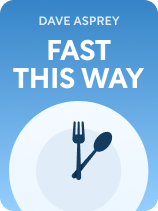
What are the most important intermittent fasting supplements? Can supplements help you fast more healthily?
Intermittent fasting supplements include activated charcoal, proteolytic enzymes, and adaptogens (such as herbs ashwagandha and ginseng). Each of these serves a different purpose, and having this understanding can support a healthier fast.
Keep reading to learn what each of these supplements does and how it supports your health.
Take Supplements to Upgrade Your Fast
Intermittent fasting supplements provide your body with the nutrients it needs during your fast. Modern foods aren’t as healthful as those our ancestors ate, and we therefore can’t rely on food alone to meet our nutritional needs: Today’s foods contain toxins, chemicals, and stressors that weren’t present years ago, and they contain more calories and fewer nutrients.
(Shortform note: Although it’s true that the nutritional content and toxin levels of individual foods may have changed since ancient times, some argue that a bigger shift, that’s had a more significant effect on modern nutrition, is the change in the breadth of foods we eat today as compared to our ancestors. Ancient foragers ate a wide variety of foods from diverse sources (the mummified body of an Iron Age man, for example, revealed his last meal of porridge consisted of 40 different grains and seeds). Today, agricultural practices have narrowed our food choices down to a handful of staples (sugar, corn, wheat, and rice) and eliminated much variety within vegetables and fruits, resulting in a more limited range of nutrients available to us.)
Here are several supplements that can provide you with nutritional support and improve your fasting results:
1. Activated charcoal: This type of charcoal traps toxins in your gut and prevents your body from absorbing them. It can help you avoid gut pain while fasting, and it also reduces your hunger cravings.
(Shortform note: Activated charcoal is more commonly used as an emergency treatment for poisoning under medical supervision. However, there isn’t much research to support the efficacy of activated charcoal for your gut health. While mostly safe, activated charcoal can cause side effects like vomiting, diarrhea, constipation, black stools, and sometimes intestinal blockages.)
2. Proteolytic enzymes: These enzymes improve your body’s autophagy process, helping clear out unwanted proteins and other cellular debris. They also improve digestion and blood flow.
(Shortform note: Proteolytic enzymes are also naturally found in foods such as papaya, pineapple, kiwi, and fermented foods. Supplements are more likely to cause side effects (which include diarrhea, nausea, and vomiting), so some experts suggest consulting your medical provider before taking them.)
3. Adaptogens: These are herbs (such as ashwagandha and ginseng), mushrooms, and other substances that can make your fasts less painful by reducing your stress response and helping you relax.
(Shortform note: For a plant or mushroom to be an adaptogen, it must satisfy three requirements: It must be non-toxic in normal doses, help your body manage stress, and help your body return to homeostasis (an internally balanced state). However, like other vitamins and supplements, adaptogens aren’t regulated by the FDA, so you should research products carefully.)
| How Beneficial Are Supplements, Really? While some argue that supplements are essential to counteract the harmful effects of modern processed foods, other experts question the effectiveness of supplements for three reasons: First, the perceived benefits of supplements might be misleading, according to Michael Pollan in In Defense of Food. He says that although supplement users tend to be healthier, they typically already lead healthier lives—they’re generally more educated, wealthier, and more informed about their health. Thus, their good health might not be caused by the supplements they’re taking. Second, according to T. Colin Campbell and Thomas M. Campbell II in The China Study, supplements and vitamins are poorly regulated and can have unintended consequences or side effects. They also lack the holistic nutritional value that can only come from consuming the range of vitamins, minerals, and fibers in whole foods. Third, in Fast. Feast. Repeat., Stephens cautions against taking vitamins and supplements during your fast because some may activate the insulin response and can reduce autophagy. Also, most supplements have protein, and some may contain sweeteners or added flavors that would break your fast. |

———End of Preview———
Like what you just read? Read the rest of the world's best book summary and analysis of Dave Asprey's "Fast This Way" at Shortform.
Here's what you'll find in our full Fast This Way summary:
- Why intermittent fasting is more than just a way to lose weight
- How our modern eating habits differ from our bodies' natural eating patterns
- An intermittent fasting method that makes it easier and more enjoyable






